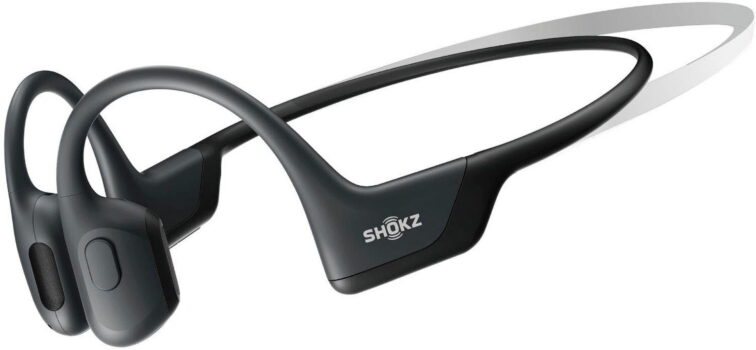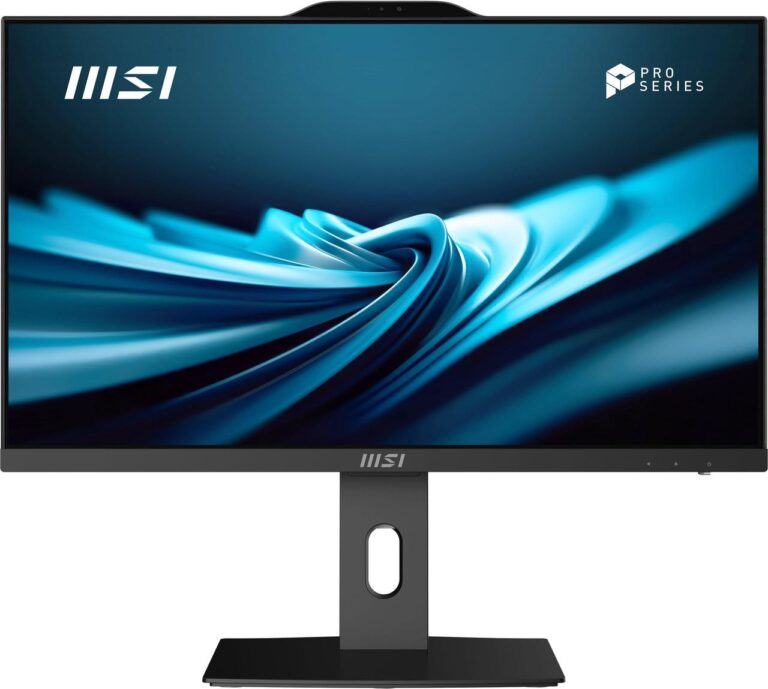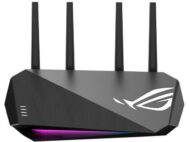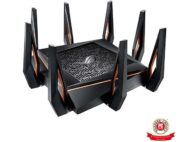ASUS ROG STRIX AX3000 WiFi 6 Gaming Router
Original price was: $199.99.$179.00Current price is: $179.00.
10%
★★★★★(2)

$177.39 Original price was: $177.39.$149.99Current price is: $149.99.



$177.39 Original price was: $177.39.$149.99Current price is: $149.99.



Hollowtag is a free and fully autonomous platform, serving as your ultimate tool for product comparisons, price monitoring, coupon discovery and offering insightful guidance for a best shopping decisions.
Get daily deals and smart shopping tips by signing up to our newsletter!
Log in, or create an account and become a member today.
Log in, or create an account and become a member today.

Anonymous –
Pros: If there’s anything I learned in the last 10 weeks from trying to replace a Netgear WNDR3800 and R6300 with a newer 802.11ac router is that wireless is consistently inconsistent. I tested the Synology RT1900ac, Netgear R8500 (3 of them thanks to failing radios), ASUS RT-AC5300 (almost returned it until I figured out what was causing systems to BSoD), ASUS RT-AC3100, ASUS RT-AC1900P and now the Synology RT2600ac. The R8500 was faster overall than all of them but there was no way I was going to continue with replacements with repeated radio failures and wasn’t going to put up with their tired interface and lack a features. I really liked the RT1900ac features and interface but had average performance at best. I wound up settling with the RT-AC5300 because it was almost as fast as the R8500 but had a better interface and features. There have been reports that the radios in this model have been failing like the Netgear and left me uneasy; I’m wondering if it has something to do with the Broadcom chipset they share or if they’re overheating because there isn’t any way to adjust power with both tri-band models. Luckily the RT2600ac started shipping before my return period expired on the RT-AC5300 and keeping the Synology. I wish performance was better overall than the R8500 but I’d stack it in-between the two with the Synology beating the Netgear on a few of my tests. Performance for all models were inconsistent and neither of the top three dominated, but my choice was based on performance in locations and operations I perform the most, family feedback, features, product management and usability. I like that you can adjust power levels but only low, medium and high are offered; the low levels on 2GHz and 5GHz cover the areas I need on that segment of my network. The other models don’t let you adjust power levels. It’s nice I’m not restricted to 16 character passwords like the ASUS models. One down side is that it doesn’t support 64 HEX characters like other routers and clients and have addressed this with Synology. At least they responded the next day to my query unlike the other manufacturers. It’s great that Synology and ASUS allow you to change the admin user name and also support HTTPS management on the LAN side as well as selecting your own port unlike Netgear. The Synology has certificate support which can be exported to other appliances and allows SYSLOG as well as other features. I’m currently using the router as an NTP server and pointing all devices to it so only one device goes out externally for time. Another feature I’m looking forward to testing more is the IPS beta add-on they have; it’s a free feature and there’s also a paid subscription service. You need to have external storage to download and use so a fast SD card should do. Off the top of my head it added about 10% CPU usage up to (30ish) and the same amount of RAM. There are other packages available that can be downloaded like a DNS server, VPN and others but not planning on using it on this router. I was pleased to see the addition of eight 5GHz band channels (52-112) (the RT1900ac had this as well) but haven’t had the chance to use them. There are currently no users on those channels in my area and it reminds me of the days when I was the only one using 802.11a on 5GHz for years. Too bad it’s getting crowded like 2.4GHz in my area. I think Synology made good with their second router attempt and glad I’m able to use “big boy” features not seen on consumer/home routers and for less cost. ASUS can try to polish their UI with their “updated” 5300 for a lot more money but my money is going to Synology with a more complete package. I’m also confident they’d support this product with updates longer than the home versions based on experience with some of their NAS devices. Cons: Wish wired performance was a little faster. Overall Review: This isn’t a controlled test environment but my typical “real world” operation. Used a PCIe Half Mini Card Intel AC 7260 2×2 (867 Mb), an ASUS USB-AC68 USB 3.0 3×4 (1300 Mb), and Netgear A6200 USB 2.0 (867 Mb) adapters for testing. Routers were swapped at the same location on a second floor and clients on 1st floor (same location) at about 45 degree angle and approximately 40 ft. away. Power was set to high for RT2600ac and both used same fixed channels on 5GHz where adjacent interference was minimal. Routers were upgraded to latest versions, set in AP mode and fully configured as I would normally run as well as client adapters updated on Windows 10 64-bit. USB-AC68 using USB 3.0 system: RT-AC5300 – 128 Mb peak / 128 Mb typical download 240 Mb peak / 232 Mb typical upload 232 Mb peak / 168 Mb typical download w/MIMO 200 Mb peak / 264 Mb typical upload w/MIMO RT2600ac – 136 Mb peak / 120 Mb typical download 200 Mb peak / 184 Mb typical upload 128 Mb peak / 120 Mb typical download w/MIMO 208 Mb peak / 200 Mb typical upload w/MIMO USB-AC68 using USB 2.0 system: RT-AC5300 – 256 Mb peak / 248 Mb typical download 224 Mb peak / 216 Mb typical upload 240 Mb peak / 224 Mb typical download w/MIMO 32 Mb peak / 24 Mb typical upload w/MIMO RT2600ac – 272 Mb peak / 264 Mb typical download 264 Mb peak / 200 Mb typical upload 272 Mb peak / 264 Mb typical download w/MIMO 208 Mb peak / 200 Mb typical upload w/MIMO A6200 USB 2.0 adapter: RT-AC5300 – 88 Mb peak / 88 Mb typical download 200 Mb peak / 184 Mb typical upload 88 Mb peak / 80 Mb typical download w/MIMO 192 Mb peak / 184 Mb typical upload w/MIMO RT2600ac – 96 Mb peak / 72 Mb typical download 192 Mb peak / 184 Mb typical upload 112 Mb peak / 80 Mb typical download w/MIMO 192 Mb peak / 184 Mb typical upload w/MIMO Internal 7260: RT-AC5300 – 328 Mb peak / 304 Mb typical download 184 Mb peak / 168 Mb typical upload 128 Mb peak / 120 Mb typical download w/MIMO 288 Mb peak / 272 Mb typical upload w/MIMO RT2600ac – 240 Mb peak / 144 Mb typical download 224 Mb peak / 200 Mb typical upload 240 Mb peak / 192 Mb typical download w/MIMO 264 Mb peak / 192 typical upload w/MIMO Gigabit Ethernet: RT-AC5300 –536 Mb peak / 504 Mb typical download 920 Mb peak / 904 Mb typical upload RT2600ac – 632 Mb peak / 504 Mb typical download 920 Mb peak / 904 Mb typical upload Highest speed gap in favor of the RT-AC5300 was about 160 Mb better average download speed with 7260 adapter. Highest speed gap for the RT2600ac was about 176 Mb better average upload speed with USB-AC68 adapter on USB 2.0 system. The fastest wireless speed test was achieved by the RT-AC5300 with the 7260 adapter registering 328 Mb peak and 304 Mb average download. The same router w/MIMO enabled also had the slowest wireless speed test with the USB-AC68 adapter, on a USB 2.0 system with only 32 Mb peak and 24 Mb average upload. Wired switch speed on the RT2600ac was 96 Mb faster peak but both had the same average uploads; this was slower by about 360 Mb than other switches tested. Upload speeds were equal and as good as or slightly better than other switches. – – – UPDATE Finally got around to testing additional 5 GHz channels and the ASUS USB-AC68 doesn’t work with them. The notebooks with the internal Intel NICs picked up every channel I threw at it. These are the channels the ASUS couldn’t handle: 52,56,60,64,100,104,108,112,116,132,136,140 I can imagine those that turn on automagic channel selection (only on few routers that support these channels – not ASUS) and all of a sudden clients stop connecting because of adapters that don’t support them. I’m glad the new router supports these channels since nobody is using them in the area…it will be like 802.11a days again where I was solo for a long while. Time to go notebook shopping so I can get rid of the legacy gear and get an internal Intel NIC. Wish I would have tested this a week ago so I could return the adapter. Guess I’ll chuck it in the draw with my 1Mb PCMCIA Wifi adapter after I get a new notebook.
Richard G. –
Pros: Very easy to setup and use. Software is easy to use / update/ well organized / with advanced features if you want them, it is light years beyond other routers. Very fast wired and wireless response, 2.4 GHz radio and 5 GHz work great together (fast 1.7 Ghz dual core processor). Qualcomm MU-MIMO (the best, most functional MU-MIMO offered). It just works, even with simultaneous multiple media streaming, file transfer, gaming, and voice all at once, not a pause. Wireless is fast, easy to setup and useful smart-feature. A step beyond other routers, especially Asus, Netgear, and Linksys, and i’ve owned and operated several models of each of these. The built-in software is easily accessed via web browser, and way better than supplied with other routers. Provides functionality not found in other routers. One WAN and one LAN can be combined into a failover or load balancer. Many other features (and you can download more ), like VPN, Intrusion detection, Cloud server, DNS server, just load and use the ones you want, or run none of them. If you are ready to step up to a new level of quality and functionality, get Synology. No problems replacing my old router, just unplug old one, plug in this one, starts routing immediately when you turn it on, just answer a few easy questions. You don’t often find a router (or any product) that is both advanced and easy to use at once, but this is it. This one really raises the bar on how routers should be. Cons: Would like 8 lan ports instead of 4. However 4 is sufficient for most purposes. Overall Review: Would recommend to someone new to routers, since its so easy to setup. Would recommend to an advanced user like myself since it has advanced features but you don’t need to be a rocket scientist to figure it out. Tired of the same old routers? Asus, Netgear, Linksys then move to the new quality standard, Synology
Brian D. –
Pros: + Synology Router Manager (SRM) is genius! + Great performance + “Smart Connect” + A lot of features + Synology SSL VPN + Standard VPN Options + Guided prompts when needed This review was difficult to write only because I have a lot of great things to say about it. What do people really want to know about the RT2600ac? How do I express the depth of the features without rambling? The Synology Router Manager (SRM) is their desktop-esque Web UI to administer the router. It is near identical to their NAS’ DiskStation Manager (DSM) trimmed down to router relevant controls. It is clear, concise, and intuitive. No other router that I have used is this simple to manage. The performance all-around is superb. Management tasks, wifi speed, Ethernet traffic, and Internet access all work as expected, if not better. EDIT: My original review understated the wifi strength and performance. I recently did some more performance experimentation with distance and obstructions. Most of my devices were already on a mesh network due to my previous routers in ability to provide a sufficient signal to the farthest and obstructed parts of the house. My initial coverage tests showed that the RT2600ac signal coverage and strength to be better than my previous router; however, my pre-edit review did not do the RT2600ac justice in stating how well. I also had an existing mesh network in place so I did not review the RT2600ac as objectively as I should have. Since then, the particular mesh network product that I own has been very problematic in bridge mode and I decided to give the RT2600ac more of a chance to prove itself. I switched all of my wifi devices to the RT2600ac network and I have been very impressed with its performance. So much so that I took the time to update this review. To give you an idea of how well it performs, my two farthest devices are media streaming devices: an NVidia SHIELD and a Chromecast. The signal strength on both devices are surprisingly strong. From the router to the SHIELD is about 45 ft through the office wall, the kitchen wall, and entertainment center. From the router to the farthest Chromecast is another 10 ft from the shield through two more walls and in an entertainment center. The streaming performance for both of them have been stellar. They are performing just as well on the RT2600ac as they did on the mesh. No delays in with buffering, no downgrading of video resolution, etc. I took down my bridged mesh network and boxed it up. End Edit. The “Smart Connect” is a must have for all routers this day forward and the RT2600ac has it. If the 5GHz signal is strong, then use it for speed; otherwise, switch to 2.4GHz for reliability. You do not need to configure a 5GHz connection and then a 2.4GHz anymore. One SSID and you’re good to go. There is a long list of features freely available on the Synology router and all of which you should research. It has everything you would expect on a router and then features like File services, Download Station, QuickConnect, free DDNS from Synology, reporting, and mobile push notifications to name a few. The Parental Controls are top notch too. In addition to the standard VPN options, Synology also provides their “Synology SSL VPN” which is the easiest VPN I have ever configured. I have not done any performance or protection comparisons between Synology’s SSL VPN and OpenVPN, but I can say connecting and performance seem to be quicker with the SSL VPN. Take that with a grain of salt since I am just relying on my perception. If you’ve ever configured a Synology NAS, then you know how easy they make that experience. They did a great job in the SRM too and they didn’t skimp on the hardware. Cons: I hesitantly write this in the con section, but I did have an issue with the High Priority option under Traffic Control. I did not research what went wrong or follow up with Synology, so this is just a heads up for you to research if it would be a show stopper for you. High Priority under Traffic Control did not work as I expected. What I expected was the three devices that I selected to have high priority to get first choice to the available bandwidth. All other devices should still be functional, but slowed down so the higher priority devices are *relatively* faster. However, what happened was a near crash of the network for all devices accept the three that I selected regardless of the traffic congestion. I had a hard time getting into the router to turn that feature off. I clearly must of not configured something correctly. Perhaps the one feature that was not intuitive for me to configure. Since I did not need it and there were so many other bells and whistles to play with, I forgot about this experience until writing this review. Again, I did not research the issue or follow up with Synology. I purchased the RT2600ac in July of 2017 and I haven’t tried this feature since, so it may behave differently now or even give a warning that the super flux capacitor should be enabled prior to this feature. Overall Review: I purchased my first Synology product, DS413j, in back in March of 2013 and they only ever made it better with the free software upgrades and packages. I purchased another NAS, DS1517+, in June of 2017. I admitted to myself that I have become a Synology fanboy and for good reason. I had to see what their router was like and they did not disappoint. You can definitely get a router cheaper, but the value of the RT200ac is worth the price I paid. I’ve had this router for seven months and still love it. If you found this review helpful, please let me know.
Malcolm G. –
Pros: Replaced and AirPort Extreme that took a lightning strike. The Synology RT2600ac is Easy to setup, stable, reliable And receives Regular firmware/software updates. The last update added WPA3 support. Cons: The iOS app does not have all the setting that logging into the router directly has Overall Review: I would recommend this router to others
Anonymous –
Pros: It just works. It just makes sense. It’s not netgear or asus. I’ts Perfect VPN. It’s just perfect. Cons: It did cost money but I’d buy it again. Overall Review: (Singing) I’ve been waiting… for a router like you…
ALPHONSO R. –
Pros: This is an excellent router with professional security features and updates. Cons: None. I have not had any issues with the device. Overall Review: Professional grade security. You will not be disappointed with this device.
Anonymous –
Pros: Features, Range, Parental Controls Cons: Large footprint, MAC address filtering is a bit clunky. But those are pretty minor. Nothing other than that so far. Overall Review: Great Router! I purchased this after the flash in my 2nd Netgear router stopped working and would not hold settings. No more Netgear for me. I’ve got no complaints with this Synology. Setup was easy, loads of features, great range and performance, extensive parental controls. The 2 year warranty has me optimistic it won’t die as quick as a lot of other ones I’ve had. I’ve had this one only a couple of weeks, so we’ll see….